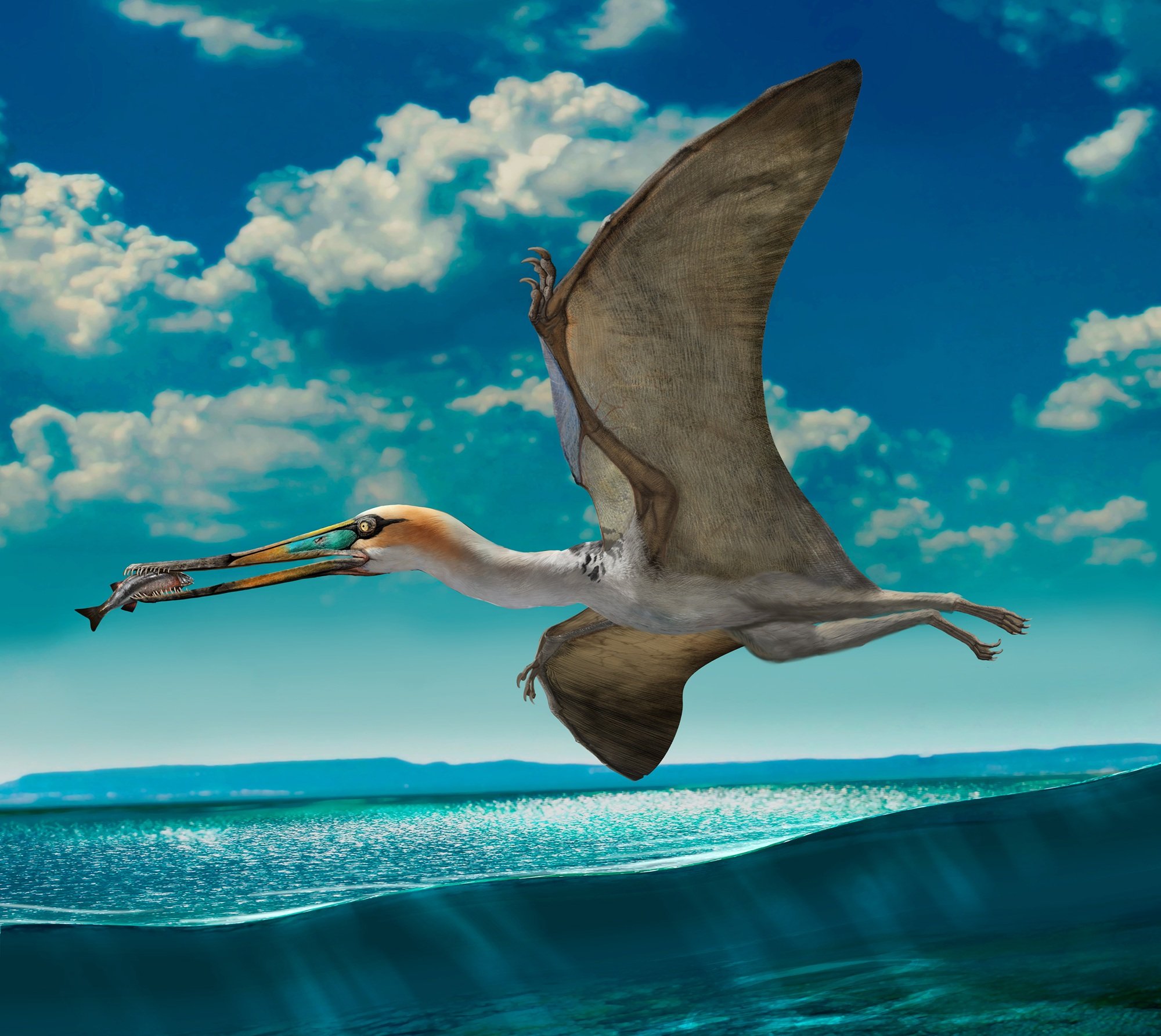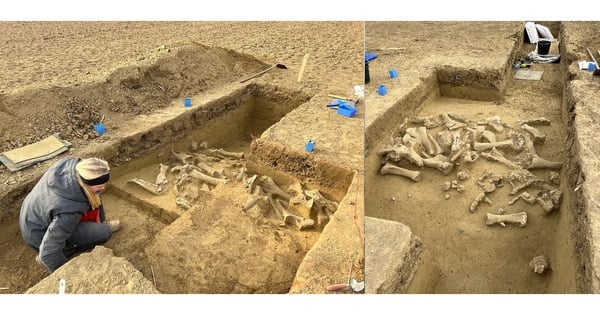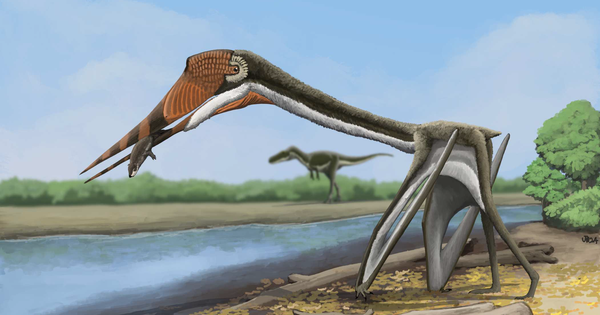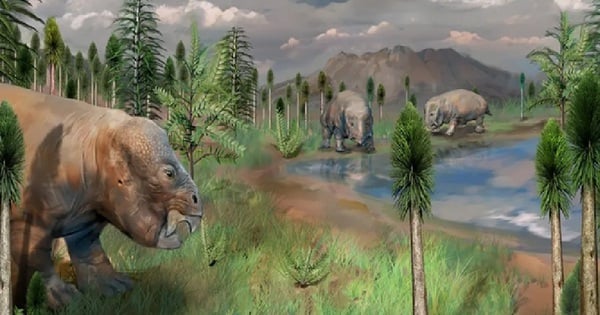(NLDO) - Remains of a previously unrecorded creature have been discovered in 147 million-year-old sedimentary rock on the Isle of Portland, England.
According to Sci-News, the fossil of a terrifying strange creature was excavated in the Portland limestone formation, located on the island of the same name in Dorset county, southern England, after a chance discovery by a miner.
It was identified as an entirely new species belonging to the ancient pterosaur lineage.

An illustration of the Ctenochasmatodea, the branch of pterosaurs to which the creature recently discovered in the UK belongs - Photo: Zhao Chuang
A research team led by paleontologists Roy Smith and David Martill of the University of Portsmouth (UK) analyzed the specimen, which included a jawbone and several teeth.
The results published in the Proceedings of the Geologists' Association show that this ancient creature is 147 million years old, belonging to the Tithonian stage of the Late Jurassic period, Jurassic period.
The fragility of the jawbone helped scientists identify it as a pterosaur, also known as a flying lizard or winged lizard.
The specimen was badly damaged due to its accidental discovery while splitting rocks in a quarry, but what remained was enough to confirm that it was a previously unknown species of the Ctenochasmatoidea pterosaur branch.
"Ctenochasmatodea is a diverse group of pterosaurs, in which most genera have long, slender teeth, located close together on long jaws, sometimes curved backward," the scientists describe.
Meanwhile, a rendering of the Ctenochasmatodea family to which the creature belongs shows it resembling a monster version of a pelican.
Pterosaurs were flying relatives of the dinosaurs and kings of the skies during the Jurassic - Cretaceous periods, most of them were skilled predators.
However, fossils of them are very few, partly because pterosaur skeletons were much more fragile than those of dinosaurs, which was necessary for them to be able to fly.
The area where the new monster was found is a stretch of land famous for its dinosaur-era fossils. The Dorset coast is also nicknamed the "Jurassic Coast", a world heritage site.
Source: https://nld.com.vn/khai-thac-da-tho-mo-phat-hien-sinh-vat-la-147-trieu-tuoi-196250325103353313.htm






























































































Comment (0)